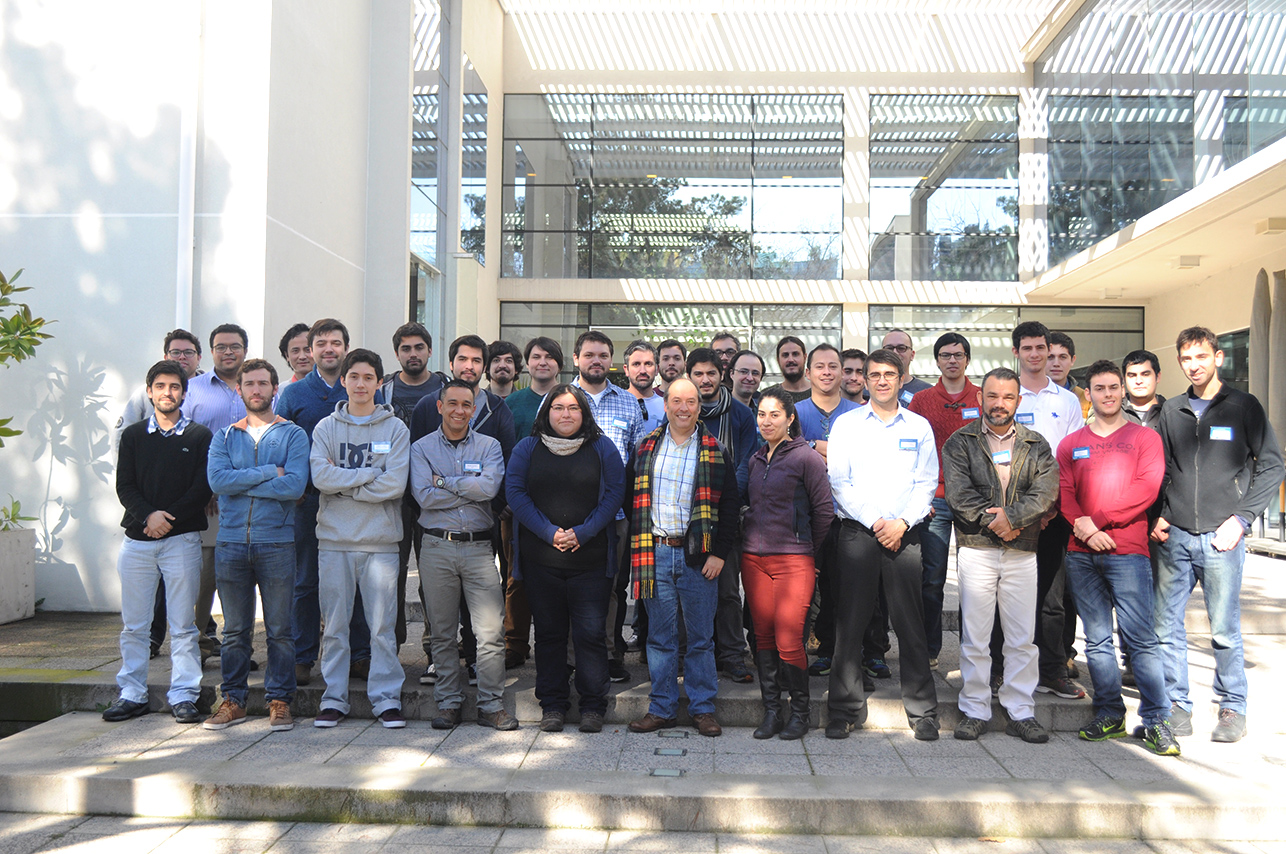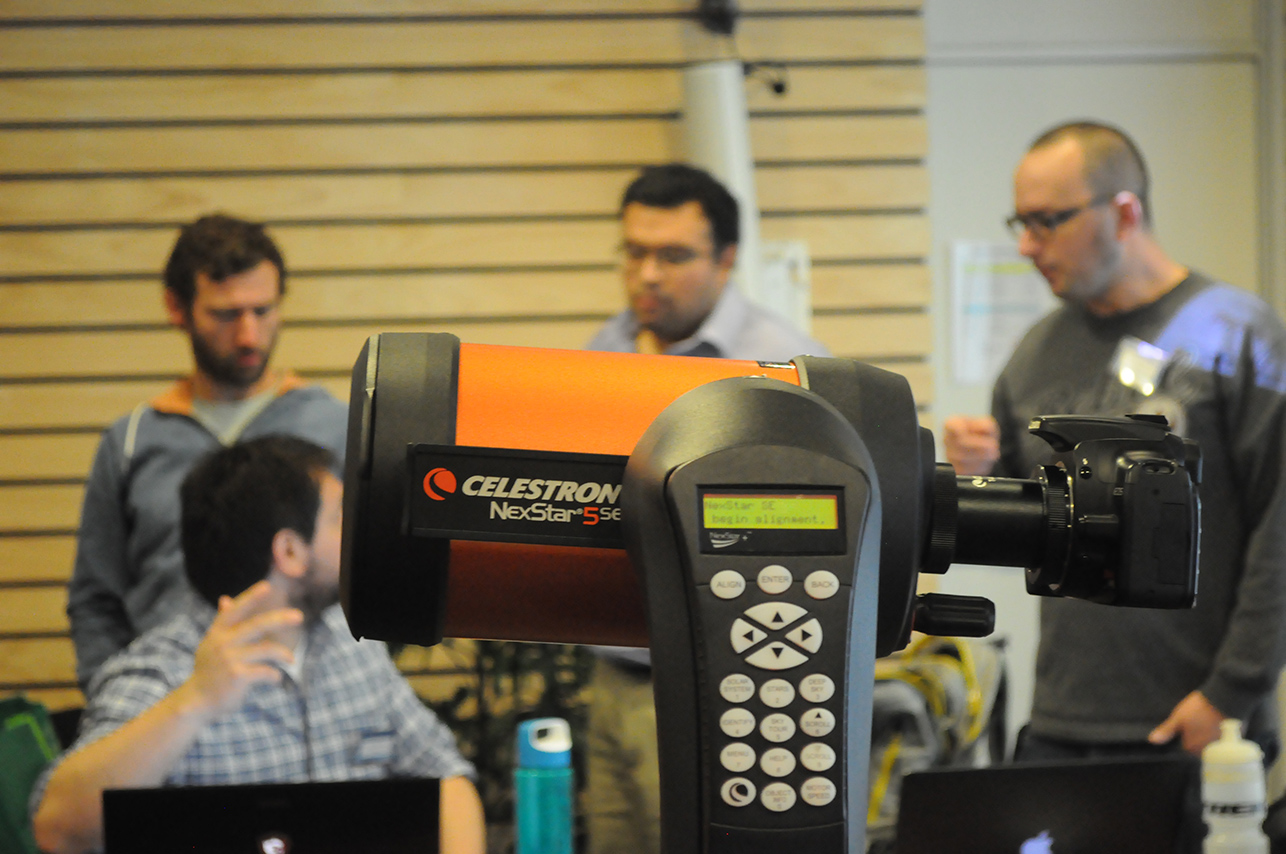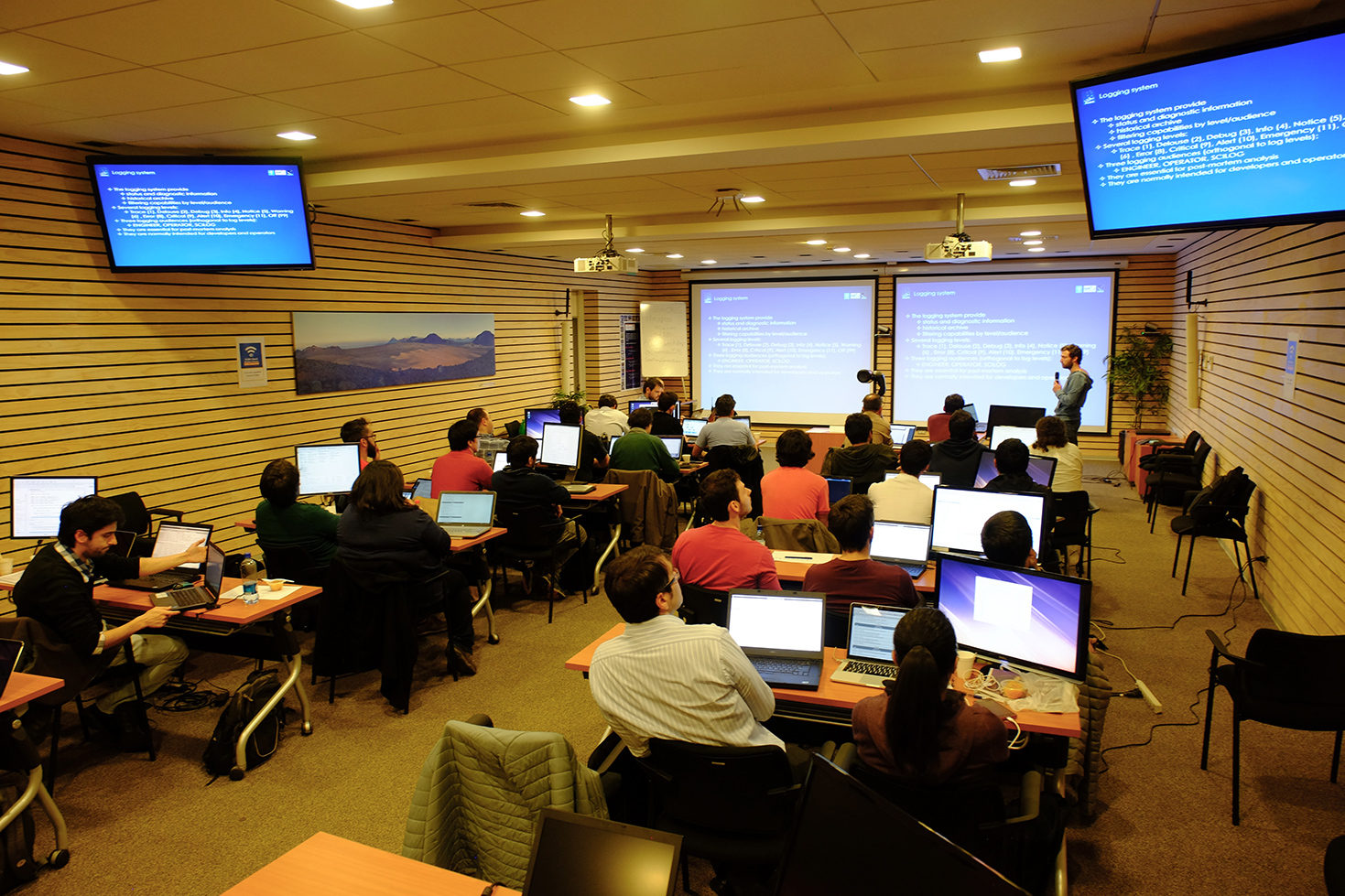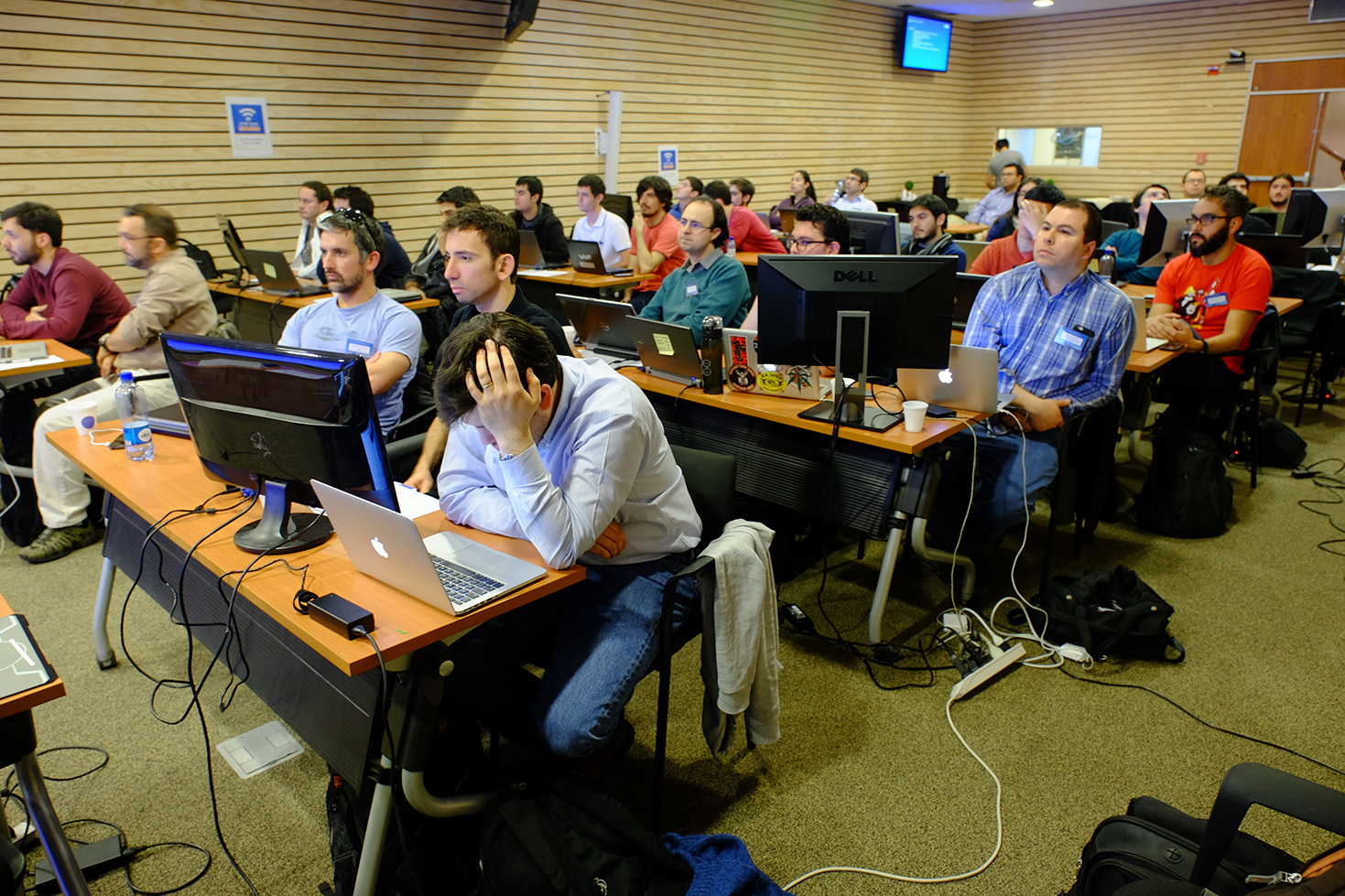ALMA Trains Future Astro-Informatics Engineers
10 August, 2016 / Read time: 3 minutes
To better understand the software used for making observations at the ALMA observatory, which controls everything from moving antennas to monitoring infrastructure, ALMA is developing the 13th edition of the ALMA Common Software (ACS) Workshop, a training instance for students, teachers and professionals in Chile and Brazil.
Between August 8 and 12, ALMA experts will be holding a series of talks and workshops to train future astro-informatics engineers. “These workshops are forming a global community of developers who contribute with improvements and ideas,” explains the head of the ALMA Computing Department, Jorge Ibsen.
ACS is an open source software that has been used and developed over more than 16 years. This new edition of the workshop includes an adapted telescope and camera with a control system to operate them through ACS. Therefore, participants will be able to test the software with a simulator of the observatory operations.
About twenty students and academics from Universidad de la Frontera (UFRO), Universidad Técnica Federico Santa María (UTFSM), Universidad Andrés Bello (UNAB), Universidad de Santiago de Chile (USACH) and Universidad de Chile will learn through ACS about the life cycle of ALMA observations, the functionalities of its components and error reporting, among other topics.

This year, the workshop will include the participation of members of the Large Latin American Millimeter Array (LLAMA) project, a radio telescope that will use an antenna identical to those at ALMA to work independently and might in the future be part of an interferometer with close to 200 kilometers baselines and will use ACS to operate. LLAMA will be represented in the workshop by students and teachers at the Mackenzie Presbyterian University of São Paulo, Brazil.
“These workshops have resulted in a close collaboration with ALMA in research and development, and it has also enabled our students to learn side by side with engineers with vast international experience in astro-engineering, opening the doors for them to perform successfully in astronomic observations around the world,” says Mauricio Araya, researcher and professor in the Informatics Department of UTFSM, an establishment that has participated in different editions of the ACS workshop since 2007.

For Rodrigo Navia, Dean of the Faculty of Engineering and Science of the UFRO, "our participation in the 2016 ACS workshop is especially important from the perspective of skills development and training for our students on specific ACS-related issues, which also strengthens our collaboration as part of the agreement between UFRO and ALMA. Furthermore, the participation of professors in this workshop gives us the opportunity to show our progress on the subject and develop new opportunities to work together."
ALMA has worked for over a decade on issues that interconnect astronomy, engineering and computing, i.e.: astro-informatics, astro-engineering and astronomic instrumentation, making it a relevant player in the field and trainer of specialists who today are active participants in an international context.


Additional information
ALMA is a partnership of ESO (representing its member states), NSF (USA) and NINS (Japan), together with NRC (Canada), NSC and ASIAA (Taiwan), and KASI (Republic of South Korea), in cooperation with the Republic of Chile. The Joint ALMA Observatory is operated by ESO, AUI/NRAO and NAOJ.
Contacts
-
Nicolás Lira
Education and Public Outreach Coordinator
Joint ALMA Observatory, Santiago - Chile
Phone: +56 2 2467 6519
Cel: +56 9 9445 7726
Email: [email protected]

